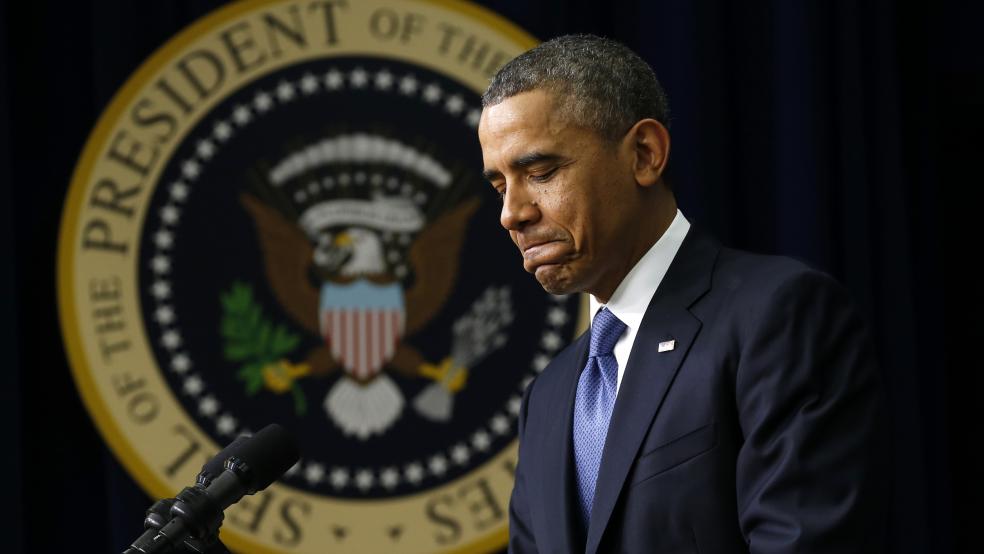The Obama administration spent last week on defense, after Congressional Budget Office Director Douglas Elmendorf testified on Capitol Hill that the Affordable Care Act would, at least on the margins, create a disincentive to work for low-income recipients of health care subsidies.
The report wasn’t the first time the CBO has caused problems for Obamacare – an analysis the agency issued as the bill was being drafted revealed that an original version would violate the president’s promise that it would not add to the deficit, forcing Democrats to restructure the proposal. But lest anyone think that Elmendorf and his agency have it in for the president, history shows that almost from its inception, the CBO has been causing heartburn for other residents at the White House.
Related: 5 Key Economic Predictions from the CBO’s Crystal Ball
In 1977, Jimmy Carter sent an ambitious energy plan to Congress, meant to reduce the nation’s reliance on foreign oil. Members of Congress who objected to the plan insisted that it be reviewed by the CBO, an agency barely two years old that had been created to provide non-partisan economic analysis of legislative proposals.
According to many in Congress, says Philip Joyce, a professor of Public Policy at the University of Maryland and the author of The Congressional Budget Office: Honest Numbers, Power, and Policymaking, CBO’s approval of the Carter plan was considered a foregone conclusion.
The CBO at the time was headed by Alice Rivlin, a Democrat herself who was appointed by a Democratically-controlled Congress. “Republicans assumed that since the Democrats appointed her, she was going to agree with the administration’s plan,” said Joyce.
But Rivlin and her staff did not agree, taking issues with the administration’s “overoptimistic” projections and issuing a critical report that Republicans and other opponents of the administration used to scuttle the plan.
CBO Future Shock: Economy Will Struggle for 7 Years
“It was one of the most significant points in the history of CBO,” said Joyce. “When she actually threw cold water on the Carter energy plan, she put CBO on the map in terms of its non-partisan credentials.”
Rivlin’s CBO was an equal-opportunity aggravator. The agency was consistently critical of President Reagan’s economic policies, to the point that Reagan once publicly criticized CBO for its “phony numbers.” Joyce’s research revealed that there was an effort made by the administration to convince Republicans in Congress to remove Rivlin from office – something the law allows either House of Congress to do.
When the Clinton administration tried to roll out a health care proposal championed by then-First Lady Hillary Clinton, CBO was chaired by Robert D. Reischauer. Democratic credentials didn’t come much more gold-plated than Reischauer’s, whose father had been John F. Kennedy’s ambassador to Japan. But again, the CBO’s non-partisan ethos trumped the party loyalty of its director.
The administration had insisted that the “health alliances” that were a key feature of the plan ought not to be included in the federal budget. Reischauer’s CBO, in the face of heavy pressure from Democrats in Congress, disagreed.
Related: Obamacare Penalty – 4 Things You Don’t Know
The ruling, said Joyce, “made no substantive difference to the policy, but gave ammunition to its critics,” and helped send the proposal to defeat.
Ten years later, Joyce reports in his book, staffers from the Clinton White House who had worked on the health care plan met to assess their efforts, and agreed that second only to Congressional opposition, the CBO analysis was the biggest contributor to the program’s failure.
History shows, according to Joyce, that the headaches the CBO had caused it over Obamacare are pretty much the rule, not the exception.
“When CBO has had the greatest impact, for better or for worse, is when the president puts forward a proposal and the CBO reacts to it,” said Joyce.
Top Reads from The Fiscal Times:





